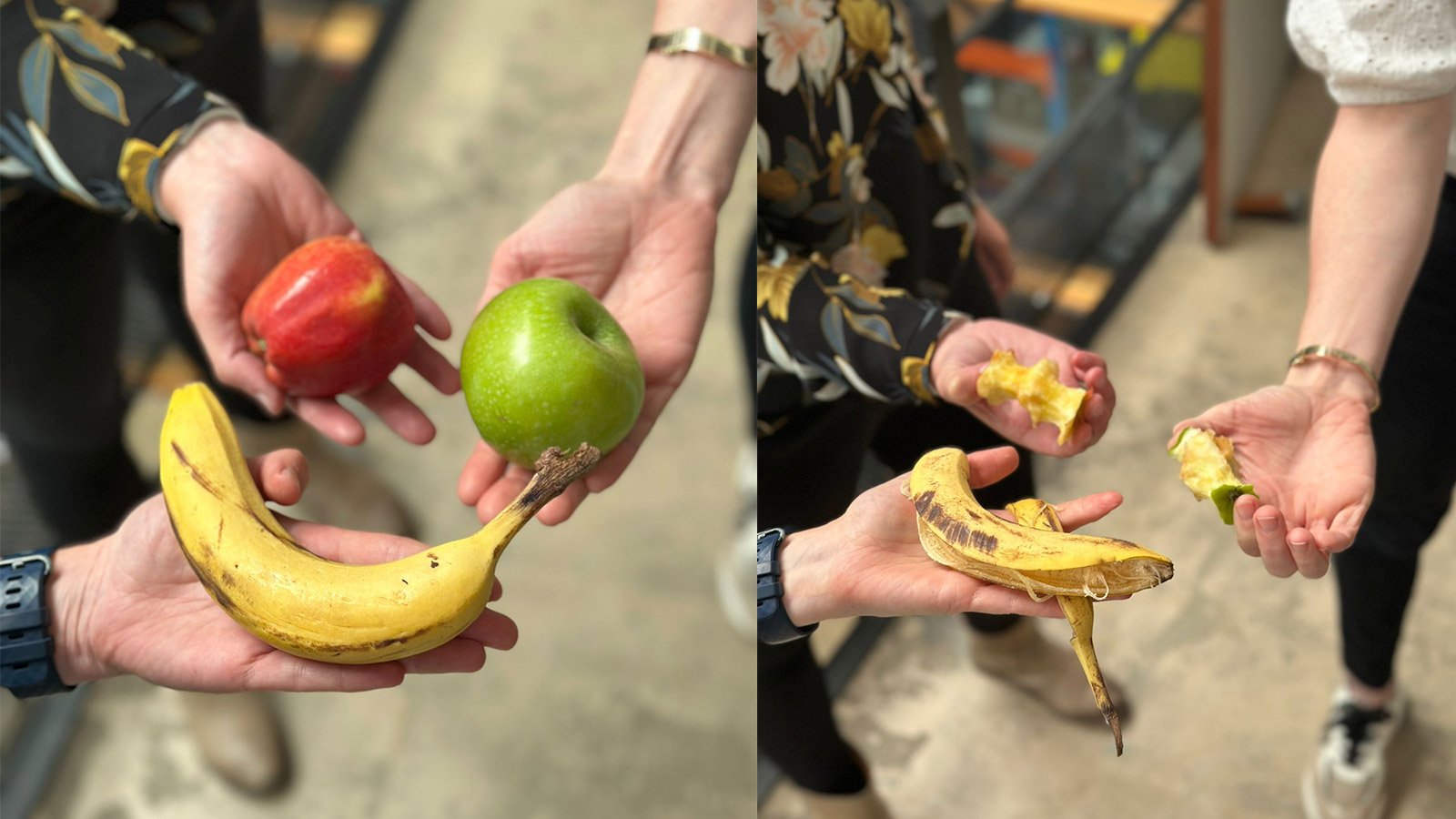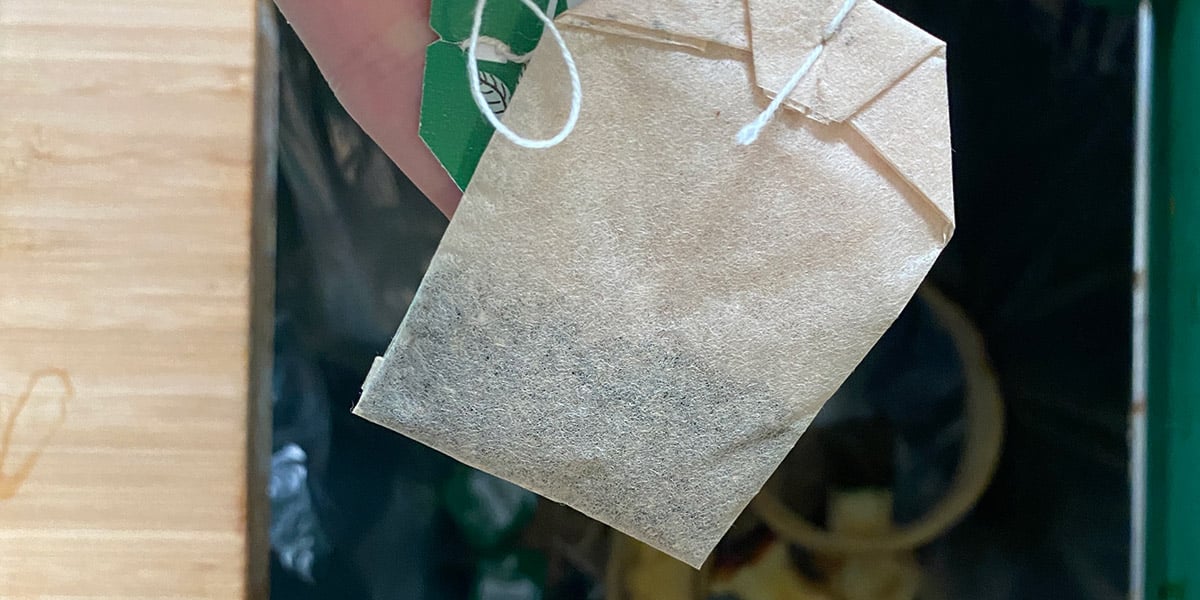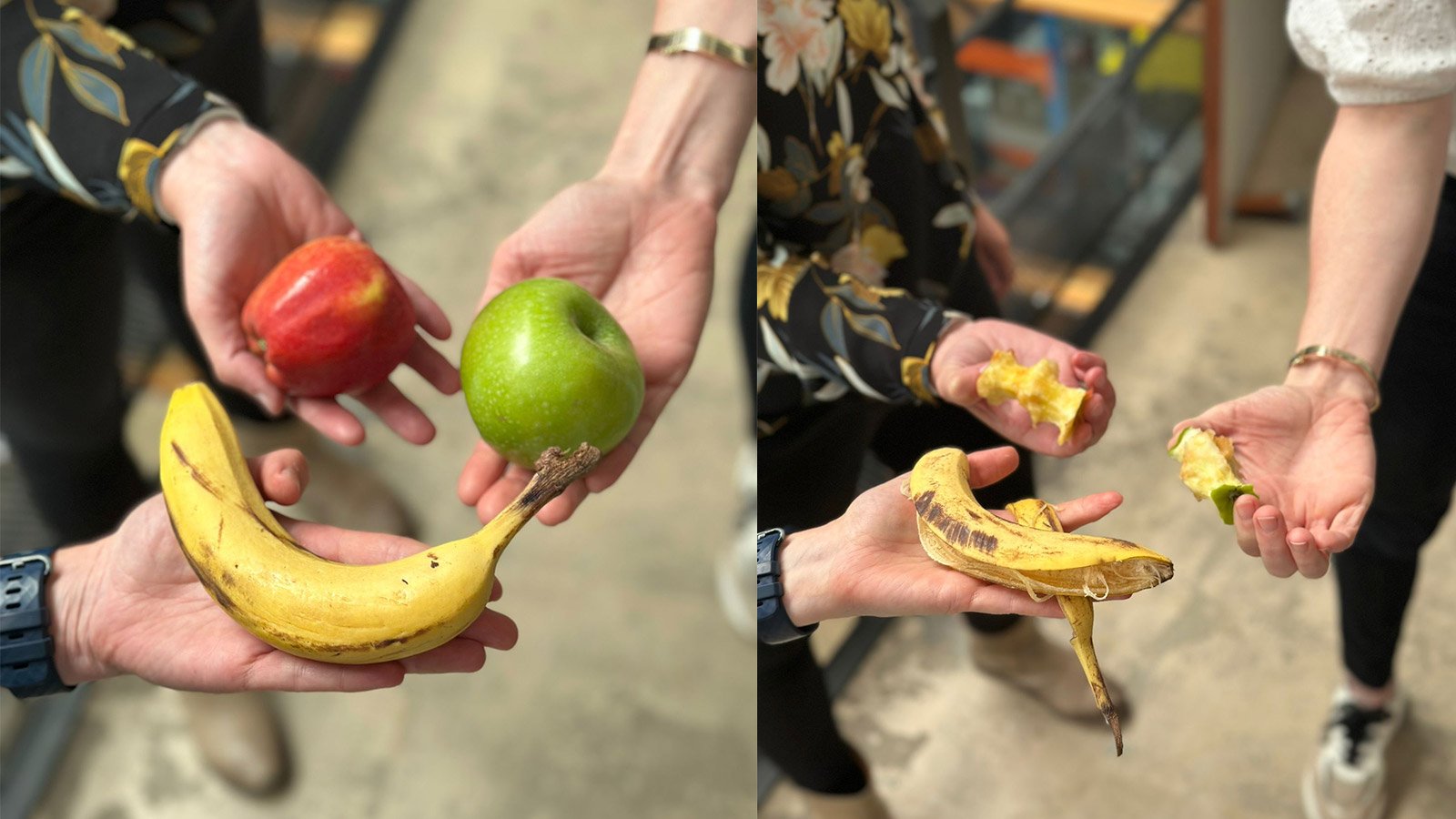At the office we don't always think about what happens to our waste after we throw it away. One specific type of waste that is often overlooked, but can have a major impact, is Organic waste: Vegetable, Fruit and Garden waste. However, this organic material, which often ends up in the green container, has much more to offer than we realize. In this blog we discuss the challenges associated with Organic waste.
What is Organic waste?
Organic/ VFG waste stands for "Vegetable, Fruit and Garden Waste". It is a category of organic waste that consists mainly of vegetable residues, such as peels and leftover fruit and vegetables, coffee grounds, tea bags, leaves, branches, grass, and other garden and plant materials.
How is Organic waste processed?
Organic waste is collected separately and then usually composted. Composting is a process by which the waste is broken down into compost, a valuable fertilizer for gardens and farmland. Collecting organic waste separately and composting it reuses the organic material and reduces the amount of waste going to landfills or incinerators.

The biggest challenges of Organic waste
- Separate collection: The separate collection of GFT waste is not always self-evident. If GFT waste is not collected separately, it often ends up in the residual waste container together with other waste. As a result, the recycling and composting potential of VFG waste remains untapped, resulting in an increased amount of waste being sent to landfills.
- Reducing food waste: A large amount of food ends up in the bin every day, because many people have difficulty reducing food waste. It is important to only buy what you really need and store food properly to prevent spoilage.
- Creating awareness: The success of separate collection of Organic waste depends on the cooperation and behavior of the employees. It is essential that employees are well informed about what does and does not belong in the Organic container, and that they are prepared to apply the correct separation. The lack of awareness and involvement can lead to a low quality of the collected Organic waste.

Tips or ideas?
Do you have any tips or ideas for preventing waste streams? Let us know! We would like to hear what you are doing to reduce food waste or avoid packaging waste, for example. We will include your suggestions in our next blogs, in which we discuss solutions for various waste streams.










